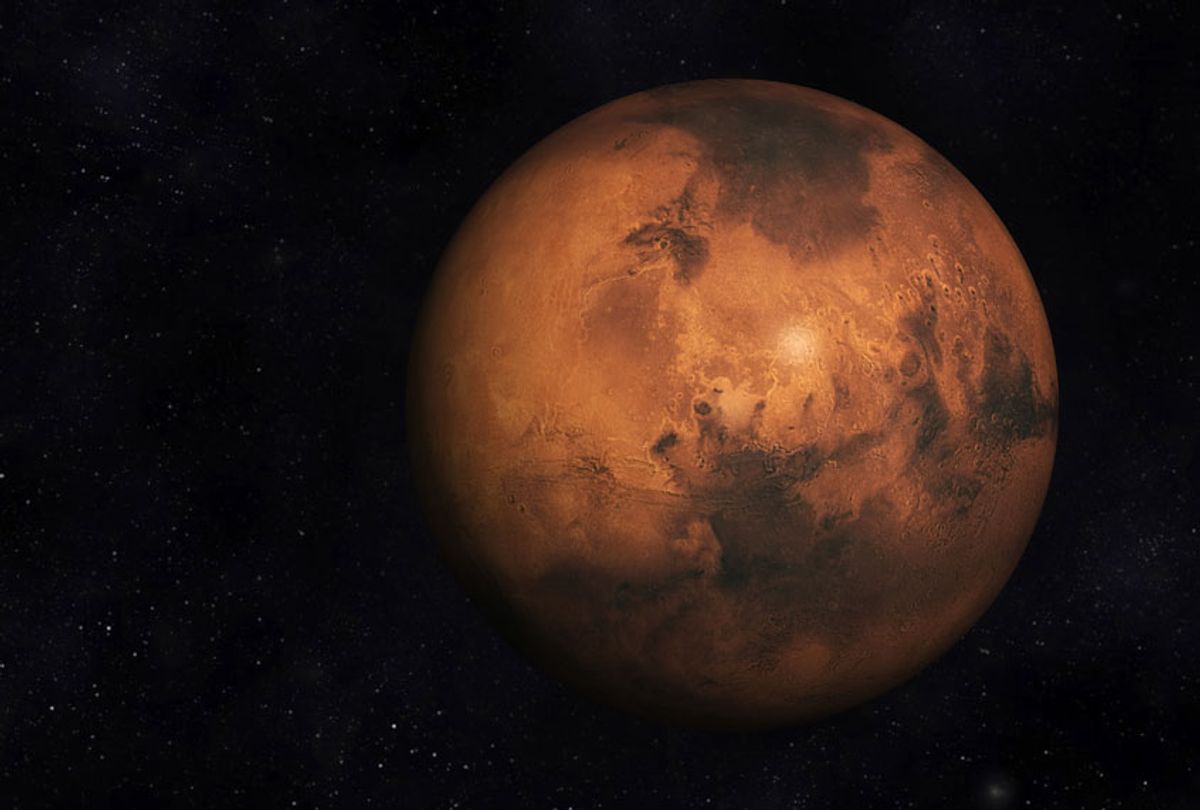Two years after planetary scientists claimed they had discovered a large saltwater lake on Mars — a finding that, if accurate, significantly increases the possibility of life existing on that planet — a group of researchers now claims to have discovered yet more underground bodies of liquid saltwater, all of them beneath the ice of the Martian south pole.
In a study published in the journal Nature Astronomy, a group of scientists from Italy, Australia and Germany have found evidence of three saltwater lakes near the Martian south pole in addition to the one they believe they found in 2018. They arrived at this conclusion by using an instrument called MARSIS — an acronym for Mars Advanced Radar for Subsurface and Ionosphere Sounding — which is onboard the European Mars Express, a spacecraft that orbits the planet. MARSIS created 134 radar profiles from 2010 to 2019 of the Martian region known as Ultimi Scopuli, which researchers analyzed. They concluded that an entire system of buried lakes might exist on the planet, rather than only one.
"Our results strengthen the claim of the detection of a liquid water body at Ultimi Scopuli and indicate the presence of other wet areas nearby," the scientists write.
Although the presence of water could suggest the existence of life akin to the organisms that exist in subglacial lakes in Antarctica, the Martian lakes are believed to be "hypersaline" — that is, unusually salty. This would make it more difficult for Earth-like life to exist there.
"There's not much active life in these briny pools in Antarctica," John Priscu, an environmental scientist at Montana State University, told the journal Nature. "They're just pickled. And that might be the case [on Mars]."
Scientists are also not in agreement that the data shows definitively that these are underground lakes.
"Something interesting is happening here, but there's a really high bar for proof when it comes to talking about liquid water on Mars," Cassie Stuurman, a planetary scientist and radar expert with the European Space Agency (and who is not involved in the recent study), told Gizmodo by email. "To be really convincing, most scientists would want to see this corroborated by other lines of data and evidence."
Ali Bramson, a planetary scientist at Purdue University, expressed a similar view to Science News, arguing that "something funky is going on at this location" but adding that "there are some limitations to the instrument and the data…. I don't know if it's totally a slam dunk yet."
The news comes on the heels of the revelation that Earth's other neighbor, Venus, Earth's, may harbor airborne life in its atmosphere. Two weeks ago, a group of scientists published a Nature Astronomy paper in which they revealed that phosphine has been discovered in the atmosphere of Venus. "The only known processes that produce phosphine on Earth in similar quantities are biological in origin," Helen J. Fraser, a co-author of the Venus paper, told Salon earlier this month.

Shares